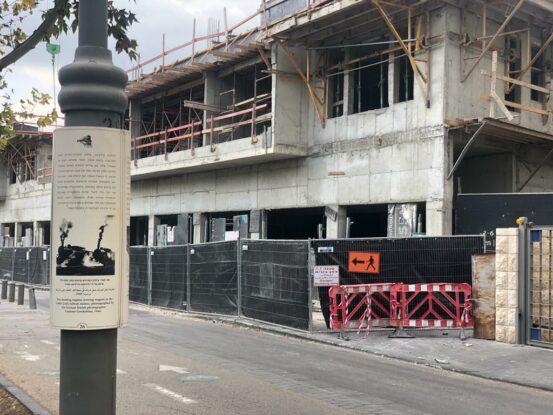According to data recently published by the Central Bureau of Statistics (CBS), Israel housing prices rose by 6% in just six months. The areas that experienced the sharpest jump are Jerusalem (10.7% per year) and the cities of central Israel (10.5%). Market sources estimate that this trend may lead to a long-term shift in the market, as most of the population will move to a model of long-term rental housing. In response to these numbers, Finance Minister Lieberman announced that his plan to resolve the crisis will be published in the next few days, most likely including heavier taxation on real estate investors.
Housing prices in Israel continue to skyrocket in what is evolving into an economic and social crisis that may change the face of the Israeli housing market for decades to come. According to the Housing Price Index published each month by the Central Bureau of Statistics, there was a monthly increase of 1.2% in residential real estate prices between July and August 2021. A comparison with August 2020 shows that the annual rate of increase in housing prices stands at 9.2%.
Despite how shocking this figure is, the real number is even higher. The data indicates that the rate of increase over the last six months alone (February to August 2021) was 6%, indicating that the actual annual rate of increase in Israel real estate prices is above 10%.
Real estate prices are soaring across the country
In the Jerusalem District, including Bet Shemesh, housing prices went up by 10.7% in the past year and 2.5% in the last month alone. In the Central District, which includes most of the cities in the center of the country, but not those of Gush Dan, there was an annual increase of 10.5%, 1.9% in the last month. In the Tel Aviv District, which includes the surrounding cities of Gush Dan, there was a 9.5% increase in the past year, with 1.8% in the last month. The Haifa District, which includes the Kiriyot and Hadera, saw the lowest annual increase – just 6%. Housing prices have risen by 9.6% in the past year in the Northern District and 7.2% in the Southern District.
Market prices for new housing across the country have jumped by 1.6% in the past month, not including those sold through the Israeli government-subsidized Buyers’ Price program. In total, the prices of new homes rose by 11.8% over the past year.
More and more people will opt for long-term leases
This extreme spike in prices happening in the Israeli housing market where prices were already very high, causing many experts in the field to believe that we are on the verge of the formation of a new industry. The vast majority of the population will no longer be able to own homes, especially potential first-time home buyers, because they will simply be priced out of the market. In this climate, the long-term rental market is expected to become an increasingly popular option.
Indeed, in the past few months, several long-standing real estate ventures, which have until now developed apartments for purchase, have entered the long-term lease business. One of the most prominent is Gindi Holdings, which has signed several deals for a total of hundreds of apartments – all designated for rentals. Last week, the renowned real estate company signed the latest deal to purchase 50 apartments in Haifa from Almog Realestate for NIS 97 million. Shikun & Binui, Ashtrom, and Azorim are other major real estate and development companies that are currently building projects for long-term rental.
The government is attempting to cool the market with several measures
In response to the CBS data on Israeli housing prices, Finance Minister Avigdor Lieberman issued a statement to the media that he would publish a new plan to curb housing prices in the market in the coming days. The plan was formulated together with the Minister of Housing and Construction, Ze’ev Elkin, and Minister of Interior, Ayelet Shaked.
According to estimates, the plan aims to cool the market in part by increasing the real estate purchase tax, especially for those buying apartments for investment purposes. However, over the last few days, it has become clear that Shaked, who holds liberal economic views, is trying to abolish the tax increase on investors. Due to the severe housing crisis and the sharp rise in real estate prices, there is little chance that her attempts will be successful.
The plan for the housing market is expected to include other measures, such as implementing the Target Price Program, Elkin’s subsidized housing plan for first-time Israeli home buyers, and expanding the activities of the National Planning and Building Committee for Priority Housing Areas (VATMAL), which is authorized to quickly approve massive construction plans.








